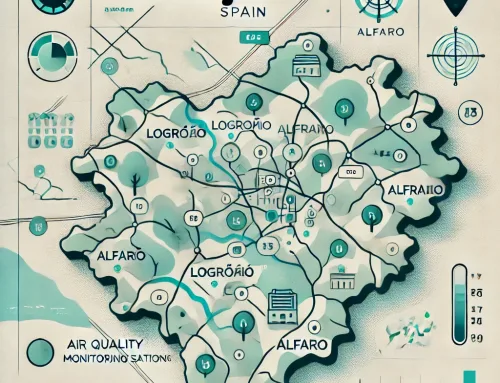dnota signed last June 14, its first Innovation project with the CDTI-CENTER FOR INDUSTRIAL TECHNOLOGICAL DEVELOPMENT, E.P.E.. The project has a budget of 666,850 and is denominated as follows RESEARCH AND DEVELOPMENT OF INTELLIGENT SYSTEMS FOR DATA AND EQUIPMENT ANALYSIS IN AIR QUALITY STATIONS’ The project involves the collaboration of two prestigious entities, ACCVRATE and LEITAT TECHNOLOGICAL CENTER, in software development, Machine Learning and Artificial Intelligence techniques.

dnota and innovation
dnota is committed to research, technological development and innovation and, in this sense, we have developed projects to promote new technologies of an applied nature, which represent a significant improvement in the service we offer.
Developing R&D&I activities enables us to reduce the management and production costs of projects and processes, and provides us with greater competitiveness in the sector, as well as allowing us to offer our clients a higher quality service.
During these last months dnota has worked on innovation projects that The activities include research on industrial processes and their interaction with the environment, as well as the experimental development of innovative tools and techniques for the analysis and control of environmental parameters.

Innovative SME Seal of the Ministry of Science and Innovation.
Last July, dnota was awarded the Innovative SME Seal by the Ministry of Science and Innovation, as a result of the work developed in R&D&I.
This seal reflects dnota’s firm commitment to research, technological development and innovation.
The Innovative SME Seal has allowed us to become more competitive in the sector, a key aspect at a time when productivity improvement is essential.
Research and development of intelligent systems for data and equipment analysis in air quality stations.
The main objective is the development of technological solutions that allow predictive studies on environmental data and the operation of Air Quality station equipment.
Network measurement equipment is currently quite advanced and can be managed by low-cost (and low reliability) solutions, or by very complex certified solutions with maintenance programs. In any case, network maintenance is currently performed on a reactive basis. (when it is detected that something is not working well) or in preventive (when a scheduled maintenance operation is performed without seeing the actual condition of the equipment, simply by the data provided by the manufacturer based on their quality studies). Therefore, the project proposes the development of predictive solutions for maintenance tasks, since it will enable operations to be carried out when the equipment requires it.
On the other hand, a second important aspect of the project refers to the analysis of data received from the networks, which in many cases continues to be a manual procedure, in which a technician identifies if there is data that is considered “invalid” and discards it. If unjustified anomalies are detected, a malfunction report is issued.
In this way, and with what is proposed in the project, the process called data validation, as well as the prediction of alert thresholds of exceedance of values by pollutants, would be carried out without relying solely on the human factor of the technician’s experience, but would rely on an expert support system.
Therefore, the main objective of the project is the research and development of algorithms and intelligent systems for the analysis of data obtained from environmental monitoring stations.
In this regard, it should also be noted that the objective of the project is perfectly aligned with the premises and objectives pursued by the development of technologies aimed at Smart Cities.




